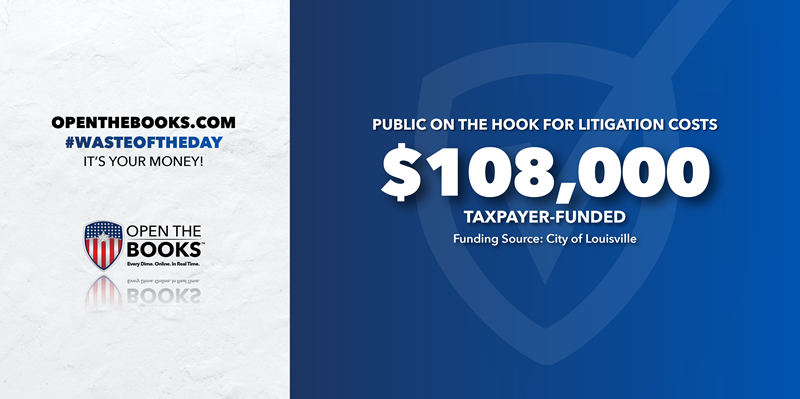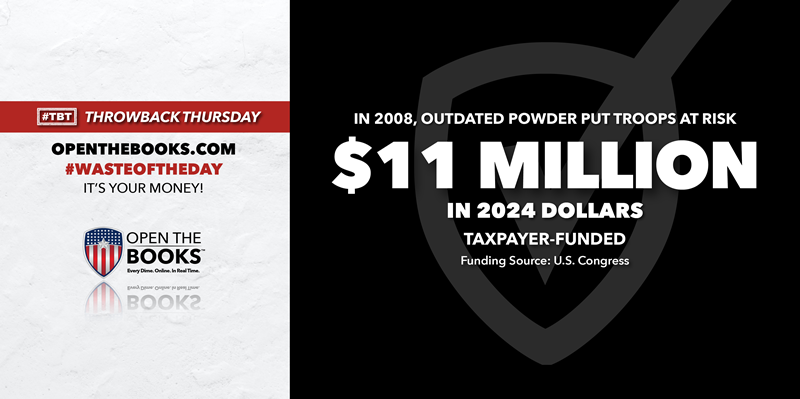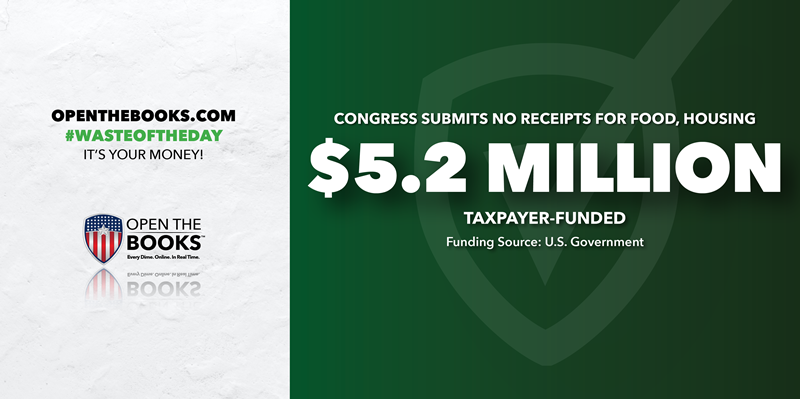
Louisville Politician Loses Lawsuit, Bills Taxpayers
June 24, 2024

Topline: A councilwoman in Louisville, Kentucky was found guilty of defamation this April, but not before she billed city taxpayers $108,000 for her legal defense.
Key facts: Receipts obtained by Louisville Public Media showed that Louisville Metro Council Member Donna Purvis used public funds to defend herself in a lawsuit filed by her former legislative aide Denise Bentley.
The lawyers billed Louisville Metro $96,840 and the city also paid $11,455 for court reporter fees and other expenses.
Louisville Public Media says the city will likely also be billed for expenses from the five-day trial in April.
A jury found that Purvis spread false rumors about Bentley forging timesheets to steal money from the city. Bentley, a former councilwoman herself, was awarded a symbolic $1 in damages.
Bentley says the false rumors started after she refused to support Purvis’ reelection campaign because Purvis had publicly called her a “redbone,” a rude term for an African-American person with light skin.
Purvis’ lawyers were hired through the Jefferson County Attorney’s Office instead of being retained privately because the same lawyers were already representing both Purvis and Bentley in an unrelated ongoing lawsuit.
Kentucky law says the city must pay for Purvis’ defense, unless she “acted or failed to act because of fraud, malice, or corruption.”
Punitive damages are only awarded in Kentucky if “oppression, fraud or malice” are present, so it would seem that Louisville Metro could demand reimbursement. The Jefferson County Attorney’s Office declined to tell Louisville Public Media whether Purvis will repay the money to taxpayers.
Bentley is looking to recoup her own legal expenses, but she says she wants Purvis to pay for them, not taxpayers.
Still, Bentley’s lawyers said if the city offers to repay the expenses on Purvis’ behalf, then a “decision” will “need to be made.” That’s not a definitive guarantee that Bentley won’t accept taxpayer money.
Search all federal, state and local government salaries and vendor spending with the AI search bot, Benjamin, at OpenTheBooks.com.
Supporting quote: “I don’t think it's fair to say that all of these fees and expenses are solely related to the defamation claim,” Purvis’ lawyer said, explaining that Louisville Metro was initially a defendant in the lawsuit. “We prevailed on getting the wrongful termination and retaliation claims dismissed on summary judgment, so I think the fees were very well spent in that regard.”
Critical quote: “When someone who is in power, and other people listen to, says things about you that aren’t true, you are very, very vulnerable,” Bentley’s lawyer said. “It does sometimes take going the distance and getting a jury to absolve you, but when that happens the person who is wrong is the one who should have to pay up.”
Summary: Taxpayers shouldn’t be on the hook for the legal bills of public officials found guilty of defaming a political opponent.
U.S. Sent Nearly $100 Million To EcoHealth Alliance
June 25, 2024

Topline: EcoHealth Alliance — the nonprofit that sent taxpayer funds to the Wuhan lab researching bat coronaviruses before the pandemic — has received $94.3 million from the U.S. government since 2008, according to Fox News.
The Department of Health and Human Services suspended funding to EcoHealth this May.
Key facts: EcoHealth received $8 million from HHS to study coronaviruses between 2014 and 2021 and sent some of the funds to labs including the Wuhan Institute of Virology.
A previous audit found that HHS did not properly monitor the grants. EcoHealth is accused of spending the money on gain-of-function research, which makes a virus more infectious so scientists can develop vaccines against it.
Some have theorized that a wayward gain-of-function coronavirus sample from the Wuhan lab could have started the pandemic. Former President Donald Trump at one point supported this theory and Dr. Anthony Fauci said in 2021 that the “possibility certainly exists,” but the CIA found “no direct evidence” of such an incident.
The HHS sent EcoHealth another $653,000 for coronavirus research in September 2022. Overall the U.S. has sent over $50 million to EcoHealth since the beginning of the pandemic, Dr. Richard Ebright, a molecular biologist at Rutgers University, told Fox News.
Ebright said most of those funds came from HHS, the Department of Defense and the U.S. Agency for International Development.
Funds also came from the Department of Homeland Security and the Department of Commerce, according to OpenTheBooks’ review of data at USAspending.gov. The Department of the Interior awarded another $61,000 for “manatee research.”
Search all federal, state and local government salaries and vendor spending with the AI search bot, Benjamin, at OpenTheBooks.com.
Background: EcoHealth Alliance’s funding of the Wuhan lab is just one piece of the $490 million the U.S. sent to China between 2017 and 2023, quantified by OpenTheBooks and Sen. Joni Ernst last year.
HHS sent $64 million to China, including $298,000 to try and get the country to clean up its research fraud.
Another $51.6 million came from the DOD, including $6 million to use Chinese software in U.S. defense programs.
Summary: More transparency and accountability is needed for the American public to understand how the pandemic began and what research our taxes are supporting.
New York Will Spend $1 Million To Study Why Commuters Dodge Fares
June 26, 2024

Topline: Ever hop the turnstile at the subway station?
Ethics aside, it’s not such a head-scratching decision. Those who do, want to save a few bucks when they can.
But the New York City Metropolitan Transit Authority is apparently baffled by the practice, and it’s spending up to $1 million to figure out why commuters dodge subway fares, according to a new procurement notice.
Key facts: The MTA will hire behavioral scientists to write a report on the “personas” of subway and bus riders, categorized by the different “psycho-behavioral drivers” that motivate them to evade fares.
For its part, the MTA has already identified six “personas” by using what must be cutting-edge sociology. Some New Yorkers dodge fares because they “think it is cool and edgy,” while others are “uneducated about the importance of paying the fare,” according to the notice.
Researchers will be asked to go beyond “punitive enforcement” and brainstorm ways to convince riders to pay their fare willingly.
The scientists will also be responsible for creating an advertising campaign based on their findings. The MTA suggests “filming an educational video for TikTok” or designing posters.
Finally, the scientists must analyze the return on investment for the MTA. Will they include the $1 million sunk cost of this study?
Search all federal, state and local government salaries and vendor spending with the AI search bot, Benjamin, at OpenTheBooks.com.
Background: The MTA lost $600 million to fare evasion in 2022, which the notice says is a “historic high.” Only 50% of bus riders pay the fare.
The impact might be softened if the MTA wasn’t spending $98 million on its payroll. Railroad president Catherine Rinaldi made nearly $338,000 in 2023, according to data at OpenTheBooks.com, and 23 others made over $200,000.
Other recent gaffes include New York Gov. Kathy Hochul’s recent decision this month to cancel an upcoming “congestion pricing” toll for driving into lower Manhattan — after the MTA had already spent $507 million to implement the program.
Supporting quote: The MTA says the study is necessary because traditional enforcement methods are no longer working.
“Physical barriers, fare inspection, penalties, and messages emphasizing the potential consequences of evading the fare are the most common tactics used. However, these costly and sometimes controversial methods have had limited success in reversing the upward trend in riders who do not pay,” the notice says.
Summary: If MTA officials need to spend $1 million to understand why a free bus ride is appealing, there are larger issues at play than fare evasion.
Throwback Thursday: Powder Lobbying Endangers Troops
June 27, 2024

Throwback Thursday!
Topline: Government lobbying and Congressional earmarks often lead to wasted money, but in 2008 they combined to create a scenario where U.S. troops could have potentially lost their lives.
Campaign donations helped convince Congress members to earmark $7.6 million to buy an outdated powder that protects soldiers from chemical weapons. A newly-invented lotion had already been found to be seven times more effective at preventing burns.
That’s according to the “Wastebook” reporting published by the late U.S. Senator Dr. Tom Coburn. For years, these reports shined a white-hot spotlight on federal frauds and taxpayer abuses.
Coburn, the legendary U.S. Senator from Oklahoma, earned the nickname "Dr. No" by stopping thousands of pork-barrel projects using the Senate rules. Projects that he couldn't stop, Coburn included in his oversight reports.
Coburn's Wastebook 2008 included 65 examples of outrageous spending worth more than $1.3 billion, including the money spent on the outdated powder — which would be worth $11 million today.
Key facts: The Pentagon announced plans in 2005 to stop using decontamination powder produced by the companies Rohm and Haas and Truetech, and start using lotion from a different company.
The manufacturers were not willing to go down without a fight. Rohm and Haas spent over $3 million in four years on Congressional lobbying, according to the Seattle Times. Truetech President Daniel Kohn met with New York’s two senators at the time, Hillary Clinton and Chuck Schumer, to ask for help.
That helped secure a $2 million earmark in 2007 from Clinton and Schumer to buy powder kits. The Pentagon used the money to buy materials from Truetech but not from Rohm and Haas, leading to even more lobbying.
By 2008, Rohm and Haas had convinced 10 Congress members to sponsor a $5.6 million earmark for decontamination powder. This one came with explicit instructions to buy the “raw materials” produced by Rohm and Haas, even though the Pentagon said it already had enough to last until 2012.
The Seattle Times later reported that Clinton had received nearly $7,000 in campaign donations from the two companies. Sen. Arlen Specter (R-PA) got over $47,000 and Rep. Allyson Schwartz (D-PA) received over $8,000 before sponsoring the second earmark.
The only way for the lotion manufacturer E-Z-EM to compete was with an earmark of its own. The company lobbied Sen. Thad Cochran (R-MS) to set aside $3.2 million for the lotion in 2009.
The most ironic part? E-Z-EM is based in New York and helped create jobs for Clinton and Schumer’s voters.
Search all federal, state and local government salaries and vendor spending with the AI search bot, Benjamin, at OpenTheBooks.com.
Summary: Lobbyists’ requests to spend taxpayer money should be eyed carefully, especially when it puts U.S. military members at risk of harm.
Expenses Are on the Honor System
June 28, 2024

Topline: Under new rules passed with bipartisan support last July, federal lawmakers can charge their food and housing to taxpayers based on self-reported numbers. What could go wrong?
House members reimbursed themselves $5.2 million last year under the rules that critics say rely on the “honor system” instead of receipts, according to a new report from The Washington Post.
Key facts: Federal politicians are now “strongly encouraged,” but not required, to keep receipts of their reimbursable expenses. This helps to “reduce burdens” on the lawmakers, according to draft legislation from the House chief administrative officer.
Lawmakers do not have to publicly disclose what they’re being reimbursed for.
The system is supposed to help legislators afford housing in Washington D.C. and in their home state. Politicians can’t be reimbursed for their mortgages, but they can bill taxpayers for insurance, utilities, maintenance and more. They can also spend $79 on food each day they’re on the Hill and less while traveling, per Politico.
The program dispersed cash to 319 of the 435 House members last year, split almost evenly among party lines according to the Post.
Reps. Jack Bergman (R-MI) and Matt Gaetz (R-FL) were the top two spenders, each collecting over $40,000 for food and housing.
Rep. Nancy Mace (R-SC) billed taxpayers as much as $3,000 per month to cover expenses at her $1.6 million private residence. An anonymous source showed the Post a document listing Mace’s expenses at $1,726 per month and claimed that Mace’s staff was told to collect the maximum possible reimbursement. Mace denied the allegations.
Kedric Payne, former counselor at the Office of Congressional Ethics, told the Post that anyone who misuses the program could face corruption charges.
The program was created partially to avoid raising lawmakers’ salaries, which Congress members fear could create public backlash. House and Senate members make $174,000 and haven’t raised their pay since 2009.
Search all federal, state and local government salaries and vendor spending with the AI search bot, Benjamin, at OpenTheBooks.com.
Summary: Federal spending should be subject to strict limits and rigorous oversight, not a Congressman’s pinky promise.
The #WasteOfTheDay is presented by the forensic auditors at OpenTheBooks.com.